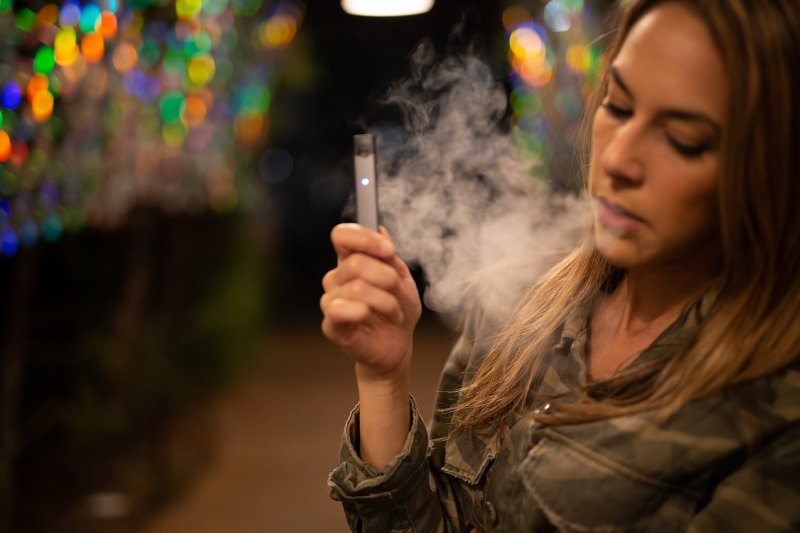Juul pods have had nicotine levels comparable to traditional cigarettes since their debut, but now ompeting brands are offering products with nicotine content similar or higher than the trendy e-cigarette. Photo by sarahjohnson1/Pixabay
Feb. 7 (UPI) -- The success of industry leader Juul has spurred a widespread e-cigarette culture that may fuel a nicotine addiction among youth -- at least partially because of the high levels of nicotine the company's products contain, a new study says.
There are 39 copycat e-cigarette devices that offer equal or higher amounts of nicotine than Juul, which had among the highest levels of nicotine when it debuted, according to new research published Thursday in journal Tobacco Control.
"Until recently, most e-cigarette liquids carried 1 to 2 percent nicotine, with a few considered 'super high' at 3 percent, intended for the two-pack-a-day smoker," Robert Jackler, a researcher at Stanford University and study senior author, said during an interview. "In 2015, Juul introduced a 5 percent nicotine vaping liquid with a novel chemistry -- nicotine salts -- which improved palatability, enabling higher concentrations of nicotine without undue bitterness."
Now the Juul pods have more nicotine than a package of tobacco cigarettes. Competing brands offer products that range from 5 percent to 7 percent nicotine content.
And sales of Juul have taken off, shooting up by 641 percent from 2017 to 2018.
Jackler says many of these e-cigarette products mislabel the amount of nicotine in the packet. This type of misrepresentation, he thinks, adds to the addiction problem.
The issue has become such a concern, the surgeon general issued a warning, calling e-cigarette use an "epidemic."
Jackler thinks the e-cigarette craze is unraveling decades of public health efforts to keep nicotine out of the hands and lungs of high school kids.
This is important because some view Juul and other e-cigarette products as a safe way to help kick the habit of smoking tobacco cigarettes. However, Jackler says e-cigarettes have had the opposite effect by introducing teens to nicotine who likely otherwise wouldn't smoke.
He also thinks nicotine can act as a gateway to harder, more lethal drugs.
"For a teen, becoming nicotine-addicted greatly increases the likelihood that they will graduate to traditional, combustible cigarettes," Jackler said. "Importantly, nicotine addiction during adolescence increases the vulnerability to subsequent addictions, like opioids or cocaine. For most users of illicit drugs, their initial addiction was to nicotine."















